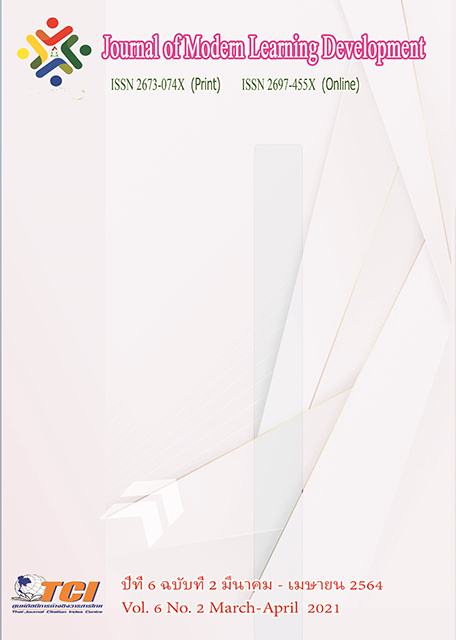An Analysis f Utilitarianism For Using as the Business Ethics
Main Article Content
Abstract
This article aims to 1) study the concept of business ethics 2) study the concept of utilitarianism in the view of John Stewart Mill 3) analyze the concept of business ethics It is a documentary research. By collecting data from primary and secondary documents then the data were analyzed by descriptive and inductive method.
The research results were found that Concept of business ethics It is a concept that is important to society and consumers, which will be the motivation for businesses to become more socially responsible. What a company or business organization will receive is trust, dedication, good image. And cause the responsibility of the business organization Responsible for society and consumers or stakeholders how large or wide, but the main thing is the responsibility of the customer. Or consumers
John Stewart Mill's concept of Utilitarianism is of the view that judging the ethical values of what is good or bad is beneficial. What action brings the greatest benefit or happiness to many? In the longest time Best or cheapest And any act that causes suffering is considered a bad action. The happiness of everyone determines the value of human behavior. Goodness and happiness are the same thing. We cannot judge an action as right or wrong.
The concept of business advantage Entrepreneurs have to take into account the consumer who is the majority in society. Making happiness for consumers is what entrepreneurs should do. Regardless of the production of quality, fair and desirable products of consumers, these things, if the consumers are happy to buy products. Or receiving services that the business has created these consumers will have an impression of the products and services. Causing sales staff to earn income from the operation of the business And it brings happiness to the entrepreneurs who profit from selecting or producing products to sell with quality to consumers.
Article Details
References
กรองแก้ว อยู่สุข และ พิมพา สรายุทธ. (2532). ความรู้ทั่วไปเกี่ยวกับธุรกิจ. กรุงเทพมหานคร: ประยูรวงศ์
กีรติ บุญเจือ. (2551). คู่มือจริยศาสตร์ตามหลักวิชาการสากล. กรุงเทพมหานคร: ศูนย์ส่งเริมและพัฒนาพลังแผ่นดินเชิงคุณธรรม
กีรติ บุญเจือ และ พิมพา อาทิตยา. (2538). พื้นฐานจริยศาสตร์วิชาชีพ. กรุงเทพมหานคร: มหาวิทยาลัย อัสสัมชัญ
คำพอง งามภักดิ์. (2543). ศึกษาเปรียบเทียบแนวคิดประโยชน์นิยมกับแนวคิดพระพุทธศาสนา . วิทยานิพนธ์บัณฑิตวิทยาลัย: มหาวิทยาลัยมหิดล.
ปรีชา ช้างขวัญยืน. (2545). ทุนนิยมกับพระพุทธศาสนา. วารสารพุทธศาสตร์ศึกษา จุฬาลงกรณ์มหาวิทยาลัย. 9 (1), 4-96
สมคิด บางโม. (2550). องค์การและการจัดการ. กรุงเทพฒมหานคร: วิทยพัฒน์.
อภิปุณชรัศมิ์ พูลพล. (2557). วิเคราะห์ทฤษฎีจริยศาสตร์ธุรกิจกับทฤษฎีประโยชน์นิยมของ จอห์น สจ๊วต
มิลล์. วิทยานิพนธ์ศิลปศาสตรมหาบัณฑิต. บัณฑิตวิทยาลัย: มหาวิทยาลัยเกษตรศาสตร์.
John Stuart Mill, (1963). In The Collected Works of John Stuart Mill. London: Toronto University Press and Routledge Kegan Pual.
John Stuart Mill, (1957) “Utilitarianism”, in Ethical Theories : A Book of Reading, ed., A. I.
Melden,
Russell, D. W. (1955). The Dignity of Man. New York : Harper
Frederick, C. (1999). A History of Philosophy. New York : Image Book
Philip, Stokes. (2012). Philosophy 100 Essential Thinkers: the ideas that have shaped our
World. UK: Arcturus Publishing
Tom L. B. (1991). Philosophical Ethics. New York: Mc Graw – Hill.


